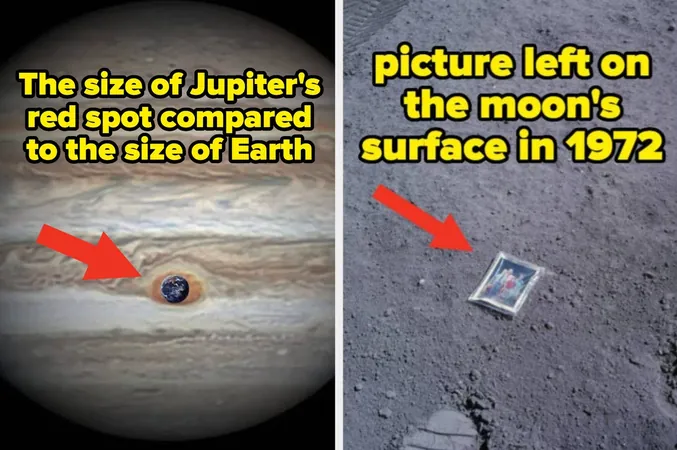
Moderna's Game-Changing Super Vaccine for Flu and COVID Faces Political Headwinds
2025-05-11
Author: Ying
Is Moderna's Vaccine the Future or Just Another Political Casualty?
Moderna is making waves with its new mRNA-based vaccine, designed to combat both flu and COVID-19. If approved by the Food and Drug Administration (FDA), this groundbreaking vaccine could revolutionize how we tackle these seasonal threats.
Recent data from a Phase III trial revealed that the experimental combination vaccine, known as mRNA-1083, outperformed expectations. Participants who received this innovative shot displayed a robust immune response—either on par with or exceeding those who received the traditional separate vaccines.
Trial Details Show Promising Results
Conducted with 8,000 participants aged 50 and older, the trial split individuals into two main age groups: 50-64 and 65+. Participants received either the new mRNA-1083 vaccine or existing flu and COVID-19 shots. Results indicated that participants receiving mRNA-1083 generated a strong humoral immune response, particularly against flu strains.
Moreover, researchers found that the new vaccine was safe and well-tolerated—a significant win for Moderna as it pushes towards approval.
Political Turmoil: Could This End in a Stalemate?
However, amidst these promising results lies a dark cloud. Recent political maneuvers have altered the FDA landscape, touching off alarm bells for Moderna's breakthrough. The Department of Health and Human Services has mandated a revamp of the vaccine approval process, forcing all new vaccines to undergo rigorous placebo-controlled trials.
While such testing is standard for many experimental vaccines, the implications for mRNA-1083 are troubling. The new rules may not only apply to this innovative vaccine but could also delay the rollout of seasonal vaccines that adapt to rapidly changing viruses like flu and COVID.
Expert Opinions Raise Red Flags
Experts in vaccine development are voicing concerns that these changes could be unnecessarily stringent and potentially unethical. The fear is that these new regulations could leave populations vulnerable to viruses that already have vaccine solutions.
An Uncertain Path Ahead for mRNA-1083
Adding to this headache is the absence of any currently approved mRNA flu vaccine, another factor that might lead the FDA to demand further testing before acceptance. With skeptical voices like Health Secretary Robert F. Kennedy Jr., who has a controversial history regarding vaccines, the fate of mRNA-1083 hangs in the balance—highlighting the intersection of science and politics in public health.
As this situation unfolds, the path forward remains fraught with complications, raising critical questions about the future of vaccines that could protect millions.



 Brasil (PT)
Brasil (PT)
 Canada (EN)
Canada (EN)
 Chile (ES)
Chile (ES)
 Česko (CS)
Česko (CS)
 대한민국 (KO)
대한민국 (KO)
 España (ES)
España (ES)
 France (FR)
France (FR)
 Hong Kong (EN)
Hong Kong (EN)
 Italia (IT)
Italia (IT)
 日本 (JA)
日本 (JA)
 Magyarország (HU)
Magyarország (HU)
 Norge (NO)
Norge (NO)
 Polska (PL)
Polska (PL)
 Schweiz (DE)
Schweiz (DE)
 Singapore (EN)
Singapore (EN)
 Sverige (SV)
Sverige (SV)
 Suomi (FI)
Suomi (FI)
 Türkiye (TR)
Türkiye (TR)
 الإمارات العربية المتحدة (AR)
الإمارات العربية المتحدة (AR)